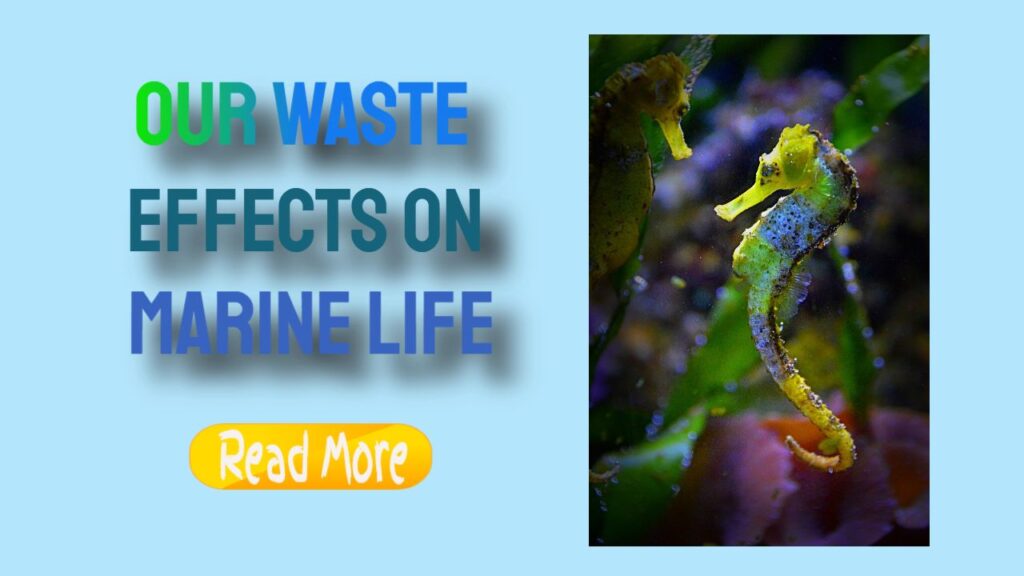Dive Deep into Essential Environmental Topics
- Unraveling the Environmental Consequences of Oil Spills
- Investigating the Health Risks Associated with Oil Spills
- Understanding Ocean and Coastal Acidification and Its Effects on Biodiversity
- Pinpointing Major Threats to Marine Ecosystems
- Assessing the Societal Ramifications of Oil Spills
- Examining the Economic Impacts Stemming from Oil Spills
- Identifying the Significant Effects of Oil Spills on Marine Life
- Evaluating the Consequences of Oil Spills on Marine Fauna
Unraveling the Environmental Consequences of Oil Spills
The pervasive issue of marine pollution encompasses a myriad of factors, including chemical, industrial, and agricultural contaminants, which have surged alarmingly in recent years. This multifaceted problem has been highlighted by various incidents such as oil spills, untreated sewage discharges, and the introduction of invasive species into sensitive ecosystems. Consequently, there is an escalating concern among scientists and environmental advocates regarding the harmful effects of these pollutants, which jeopardize not only our vital ecosystems but also public health. Continuous monitoring initiatives are now vital for quantifying the levels of chemical and plastic pollution in our oceans, employing diverse methodologies to track pollutant discharges from land-based activities, including significant oil spills. Programs like Horizon 2020 are pivotal in fostering a healthier Mediterranean by identifying pollution sources and advocating for sustainable practices aimed at marine conservation.
Research into marine pollution predominantly focuses on its impacts on biodiversity, human health risks, and the overall quality of marine experiences. This analysis will explore the interplay among these categories, emphasizing their importance in understanding marine health. While certain seabird populations may suffer from the effects of oil exposure, the overall stocks of marine species have not exhibited drastic declines due to pollution alone. Other external factors like reproductive success and population dynamics often play more significant roles. Interestingly, regions like the North Sea, despite experiencing increased pollution levels, have reported growth in fish populations, including cod and haddock, over several decades, suggesting resilience in certain marine species.
Furthermore, deep-sea mining activities significantly contribute to marine pollution, with operations extracting valuable minerals such as silver, gold, and copper. These mining practices generate sulphide deposits at considerable depths, potentially releasing harmful substances that can heighten ocean toxicity. Although scientific research is ongoing to fully comprehend the environmental consequences of deep-sea mining, it is evident that these operations pose substantial risks to marine ecosystems, causing irreversible damage and increasing the risk of oil spills and contamination.
Investigating the Health Risks Associated with Oil Spills
While oil spills are significant contributors to marine pollution, they are not the sole offenders. Other major sources of ocean pollution include discharges and runoff from urban and agricultural regions. Annually, millions of pounds of untreated waste, comprising sewage and toxic materials, are released into rivers, eventually flowing into the ocean. Industrial processes, alongside agricultural runoff, exacerbate this issue, introducing hazardous chemicals and pollutants into our water systems. The cumulative impact of these pollutants presents severe risks to both marine ecosystems and human health, necessitating urgent attention and action.
Ship-based pollution remains a critical source of maritime contamination, especially due to oil spills. Crude oil, notorious for its toxicity, can persist in ocean waters for years, posing significant threats to marine organisms, often leading to suffocation when they become entrapped in oil. The clean-up process for oil spills is notoriously complex, complicating the restoration of affected marine environments. The extent of damage inflicted by oil on coastal ecosystems is influenced by numerous factors, including the type of oil, its viscosity, and the effectiveness of the implemented clean-up methods. For example, lighter oils may affect marsh vegetation differently than heavier crude oils, presenting unique challenges for recovery efforts. Researchers are continually exploring the ecotoxicology of marine pollutants to deepen our understanding of their impacts on both human and environmental health.
Ultimate Secrets To Saltwater Fish And Invertebrates
Understanding Ocean and Coastal Acidification and Its Effects on Biodiversity
The oceans host a vast diversity of life, and increased acidity in marine environments can significantly alter the dynamics of various plant and animal species, often in unpredictable ways. While some organisms, such as seagrasses, may thrive with higher levels of dissolved carbon dioxide, others, particularly oysters, may struggle as their larvae fail to survive in more acidic conditions. As a result, ocean and coastal acidification is likely to induce shifts within entire ecosystems, affecting species abundance and interactions in profound ways.
Approximately 80% of marine pollution is believed to originate from land, primarily driven by the pressures of growing coastal populations. Nutrient pollution, largely stemming from agricultural runoff and sewage, overwhelms marine environments with excessive nitrogen and phosphorus, leading to harmful algal blooms. The decay of these blooms depletes oxygen levels, creating hypoxic zones where marine life cannot survive. As the ocean—covering 71% of our planet—continues to absorb greenhouse gases and experience rising temperatures, significant disruptions occur in the delicate balance of marine and coastal ecosystems. Additionally, melting ice caps and altered ocean currents further exacerbate these ongoing environmental changes.
Plastic pollution has emerged as a critical concern within coastal and marine ecosystems globally. The constant influx of plastic waste disrupts both the structure and function of these ecosystems, posing both direct and indirect threats to marine life. The sources of plastic pollution are diverse, stemming from both land-based and ocean-based activities, manifesting in various forms such as metaplastic, macroplastics, mesoplastics, and microplastics. Understanding the implications of plastic pollution is vital for devising effective strategies to mitigate its impacts on marine environments.
Pinpointing Major Threats to Marine Ecosystems
Antimicrobial resistance (AMR) has likely existed within marine microbial communities for centuries; however, its prevalence has surged recently, particularly in coastal waters. This increase is thought to correlate with the rising introduction of pollutants and pathogens from land-based sources into marine settings. The consequences of plastic litter on marine ecosystems have been extensively documented, revealing that numerous marine species face serious threats from plastic waste, which jeopardizes their survival, especially as many species are already under pressure from other human-induced factors.
Marine animals frequently suffer from entanglement and ingestion of plastic debris, leading to severe health outcomes and population declines. Lesser-known threats include the indirect consequences of plastic waste on invasive species and the potential influx of harmful chemicals, such as polychlorinated biphenyls, into the food chain. The socio-economic impacts of marine litter are intricate and interconnected, posing significant challenges for management and mitigation strategies. Research on ghost fishing, for instance, uncovers the economic losses associated with lost fishing gear, illustrating the broader implications of marine pollution on livelihoods and coastal economies.
Assessing the Societal Ramifications of Oil Spills
The escalating pollution of our oceans due to human activities is undermining the sustainability of marine ecosystems, with extensive societal consequences. Advanced monitoring technologies, including airborne and spaceborne sensors, are increasingly utilized to provide comprehensive insights into major marine pollutants, such as oil spills, chemical discharges, and algal blooms. However, the complexities inherent in evaluating these pollutants arise from their dynamic nature and the limitations of existing data regarding their specific characteristics and impacts, particularly in optically shallow waters.
Noteworthy oil spill incidents, such as the Exxon Valdez and Deepwater Horizon disasters, have left enduring scars on marine environments and surrounding communities. The Torrey Canyon spill in 1967 marked one of the first significant oil disasters, releasing an estimated 25-36 million gallons of crude oil off the coast of Cornwall, England, severely affecting the coastlines of both the UK and France. The Deepwater Horizon spill, originating from the seabed, had catastrophic consequences for the Gulf Coast's ecosystem, impacting marine life at all levels. In marine oil spills, fish and other marine organisms often bear the brunt of exposure to toxic oil components, leading to long-term health issues and reproductive challenges.
Examining the Economic Impacts Stemming from Oil Spills
Estuaries, often situated near petrochemical industries, are particularly vulnerable to oil exposure due to transport activities via ships and pipelines. Oil spills can severely damage vital intertidal habitats, including salt marshes and mangroves, resulting in lasting ecological consequences. The entanglement of marine animals in debris and their accidental ingestion of hazardous materials further compounds the risks posed by oil spills, affecting species such as seabirds, turtles, and marine mammals.
Oil plays a pivotal role in the modern economy, serving as a cost-effective energy source and a raw material for plastics. The impacts of oil and gas exploration and production are multifaceted, affecting ecosystems at every stage, from exploration to extraction and eventual combustion. In the North Sea, it is estimated that offshore activities contribute to 29% of the total oil input into marine environments, highlighting the ongoing risks associated with oil production and its long-term consequences for both marine life and economic stability.
Identifying the Significant Effects of Oil Spills on Marine Life
Despite advancements in environmental regulations, oil spills continue to pose a significant threat to marine ecosystems. Most oil spills are relatively small; however, cumulatively they contribute to a substantial amount of oil entering marine environments, with over 5.65 million tonnes released due to tanker spills between 1970 and 2009. The environmental risks associated with offshore oil production are profound, as massive spills can have catastrophic impacts on marine wildlife and coastal communities.
The Deepwater Horizon blowout in 2010 serves as a sobering reminder of the potential devastation caused by offshore drilling accidents. While natural disturbances often facilitate ecosystem recovery, oil spills introduce persistent contaminants that can disrupt marine life for generations. Larger marine mammals and seabirds are particularly susceptible to both immediate and long-term health impacts from oil exposure, leading to physiological changes, immune system issues, and reproductive failures.
Many coastal and marine ecosystems have adapted to withstand natural disturbances, which create opportunities for new organisms to flourish. However, oil spills introduce a level of disruption that can significantly hinder these natural recovery processes. Understanding and supporting the natural restoration mechanisms of affected ecosystems is crucial for mitigating the long-term effects of oil spills and fostering resilient marine environments.
Evaluating the Consequences of Oil Spills on Marine Fauna
Oil and gas exploration activities present various challenges for marine ecosystems, primarily through oil spills and associated noise pollution. Each year, thousands of oil spills occur in the United States alone, resulting in extensive damage to marine habitats and wildlife. The consequences of oil spills can persist for decades, and cleanup efforts often remove only a fraction of the oil, sometimes introducing additional harmful chemicals that exacerbate the situation. Marine mammals, such as dolphins and whales, face heightened health risks when exposed to oil and toxic substances emanating from drilling operations.
The impact of marine debris, commonly referred to as “plastic trash,” also represents a significant concern. Millions of Americans engage in coastal activities, often unaware of how everyday actions contribute to marine pollution. Marine litter threatens the ecological integrity of coral reefs and other critical habitats, leading to declines in biodiversity and disrupting essential ecological functions. All species of sea turtles and over half of known marine mammal species are negatively impacted by marine litter, leading to entanglement, ingestion, and potential toxicity from chemicals leaching from plastics.
The Ocean Conservancy estimates that plastic pollution affects over 690 species of marine life, underscoring the urgent need for innovative solutions. Some businesses are exploring alternatives to traditional plastic products, such as edible six-pack rings made from leftover brewing materials. The lack of comprehensive scientific data on marine plastic pollution, despite its widespread acknowledgment, highlights the necessity for ongoing research and public awareness to address this pressing issue.
Coastal regions are increasingly impacted by human activities, with marine pollution and climate change posing key challenges for these environments. Understanding the cumulative effects of these pressures is essential for effective coastal zone management and developing proactive strategies to mitigate environmental risks. Each individual carries the responsibility to contribute to the preservation of our oceans, ensuring they remain healthy and vibrant for future generations.
The Article Impact of Waste on Marine Life Was Found On https://limitsofstrategy.com



Your exploration of oil spills as a lens to understand broader environmental concerns is both timely and critical. Having closely followed various incidents throughout the years—like the Deepwater Horizon spill—I’ve come to realize just how interconnected these issues are. The health risks associated with oil spills are particularly alarming, not just for marine life but for communities living in proximity to affected waters. I remember reading about how local fishermen saw their livelihoods evaporate overnight; it wasn’t just an environmental disaster but a profound social and economic one as well.
You’ve touched on some crucial points regarding oil spills, particularly how they ripple outward into our communities. The Deepwater Horizon spill is often cited as a case in point, not just because of the staggering amount of oil released or the initial media frenzy, but because it forced many of us to reckon with the long-term implications. Those fishermen you mentioned are emblematic of a larger story—a story that doesn’t simply conclude with the cleanup efforts or the financial settlements, but continues in the lives of people who lost much more than just their fishing grounds.
You’ve touched on something really crucial here. The Deepwater Horizon spill, and others like it, opened a lot of eyes to those hidden layers of impact. It’s not just about the oil in the water; it’s a ripple effect that hits communities hard. It’s heartbreaking to see how local fishermen lost everything overnight. Their stories often remind me that behind every statistic is a family, a way of life.
It’s interesting to hear how closely you’ve followed these incidents — they really do paint a complicated picture of the world we live in. The Deepwater Horizon spill felt like a turning point for many, didn’t it? It opened up conversations not just about oil spills but about what our reliance on fossil fuels means for communities, ecosystems, and our health.
It’s striking to consider the real fallout from incidents like the Deepwater Horizon spill. The tangible impact on local communities, especially fishermen, underscores how environmental disasters don’t just affect the ecosystem—they ripple out, affecting jobs, traditions, and family histories. People often don’t realize how deeply intertwined our lives are with our natural surroundings.
Thank you for your insightful reflections! If you’re interested in diving deeper into the lasting impacts of oil spills on both the environment and affected communities, check out this detailed resource that sheds light on these interconnected issues.
https://wealth-4-ever.com/octopus
Your exploration of the environmental consequences of oil spills shines a light on a critical issue that often becomes overshadowed by other news. It’s fascinating to consider how intertwined these events are not just with marine ecosystems but also with human health and economic stability. I recall reading about the Deepwater Horizon spill and its staggering long-term impacts on Gulf Coast communities, which went beyond environmental degradation to include significant health concerns for local residents due to air and water quality deterioration.
You raise a really important point about how the ramifications of oil spills ripple through communities, affecting not just natural ecosystems but also human health and economic conditions. The Deepwater Horizon spill is a stark reminder that the environmental catastrophe doesn’t end with the visible destruction. Those long-term health issues that you mentioned are incredibly concerning; it’s frustrating how often that aspect is overlooked in discussions about such disasters.
Your exploration of oil spills and their multifaceted consequences is both eye-opening and crucial, especially given the current climate crisis. I’ve been reflecting on the long-term ecological damage these spills inflict—not just on marine life, but also on coastal communities that depend on healthy ecosystems for their livelihoods.
You bring up a really important point about the long-term effects of oil spills on both marine life and the communities that rely on them. It’s easy to get lost in the numbers and stats, but when you think about families whose livelihoods are tied directly to the health of their local waters, it adds a whole new layer to the conversation.
Your breakdown of the environmental consequences of oil spills really hits home for me. I remember reading about the Deepwater Horizon spill and how it not only devastated marine life but also impacted local communities who depended on fishing and tourism. It’s striking how one incident can ripple through economies and ecosystems.